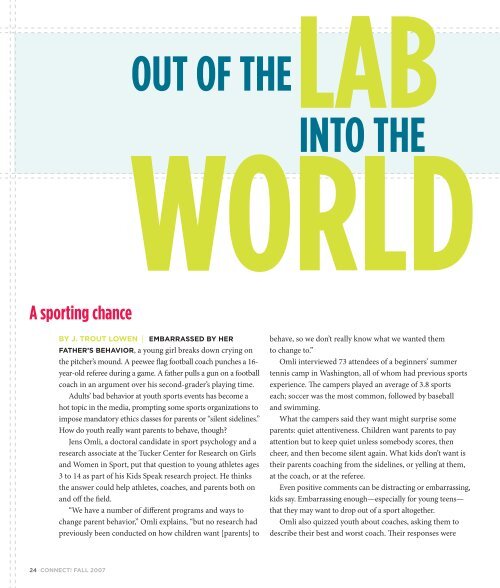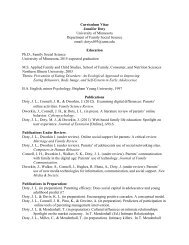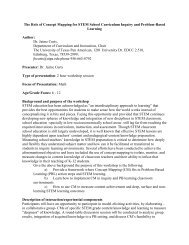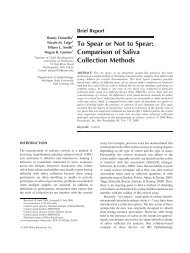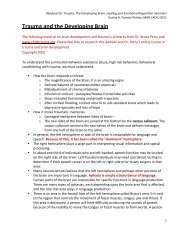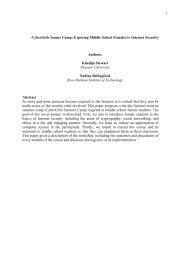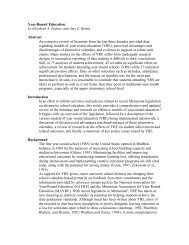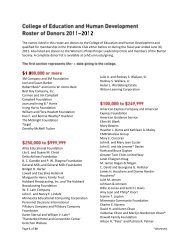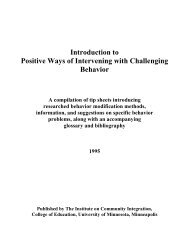connect! - College of Education & Human Development - University ...
connect! - College of Education & Human Development - University ...
connect! - College of Education & Human Development - University ...
Create successful ePaper yourself
Turn your PDF publications into a flip-book with our unique Google optimized e-Paper software.
OUT OF THELAB<br />
INTO THE<br />
WORLD<br />
A sporting chance<br />
BY J. TROUT LOWEN | EMBARRASSED BY HER<br />
FATHER’S BEHAVIOR, a young girl breaks down crying on<br />
the pitcher’s mound. A peewee flag football coach punches a 16year-old<br />
referee during a game. A father pulls a gun on a football<br />
coach in an argument over his second-grader’s playing time.<br />
Adults’ bad behavior at youth sports events has become a<br />
hot topic in the media, prompting some sports organizations to<br />
impose mandatory ethics classes for parents or “silent sidelines.”<br />
How do youth really want parents to behave, though?<br />
Jens Omli, a doctoral candidate in sport psychology and a<br />
research associate at the Tucker Center for Research on Girls<br />
and Women in Sport, put that question to young athletes ages<br />
3 to 14 as part <strong>of</strong> his Kids Speak research project. He thinks<br />
the answer could help athletes, coaches, and parents both on<br />
and <strong>of</strong>f the field.<br />
“We have a number <strong>of</strong> different programs and ways to<br />
change parent behavior,” Omli explains, “but no research had<br />
previously been conducted on how children want [parents] to<br />
24 CONNECT! FALL 2007<br />
behave, so we don’t really know what we wanted them<br />
to change to.”<br />
Omli interviewed 73 attendees <strong>of</strong> a beginners’ summer<br />
tennis camp in Washington, all <strong>of</strong> whom had previous sports<br />
experience. The campers played an average <strong>of</strong> 3.8 sports<br />
each; soccer was the most common, followed by baseball<br />
and swimming.<br />
What the campers said they want might surprise some<br />
parents: quiet attentiveness. Children want parents to pay<br />
attention but to keep quiet unless somebody scores, then<br />
cheer, and then become silent again. What kids don’t want is<br />
their parents coaching from the sidelines, or yelling at them,<br />
at the coach, or at the referee.<br />
Even positive comments can be distracting or embarrassing,<br />
kids say. Embarrassing enough—especially for young teens—<br />
that they may want to drop out <strong>of</strong> a sport altogether.<br />
Omli also quizzed youth about coaches, asking them to<br />
describe their best and worst coach. Their responses were


